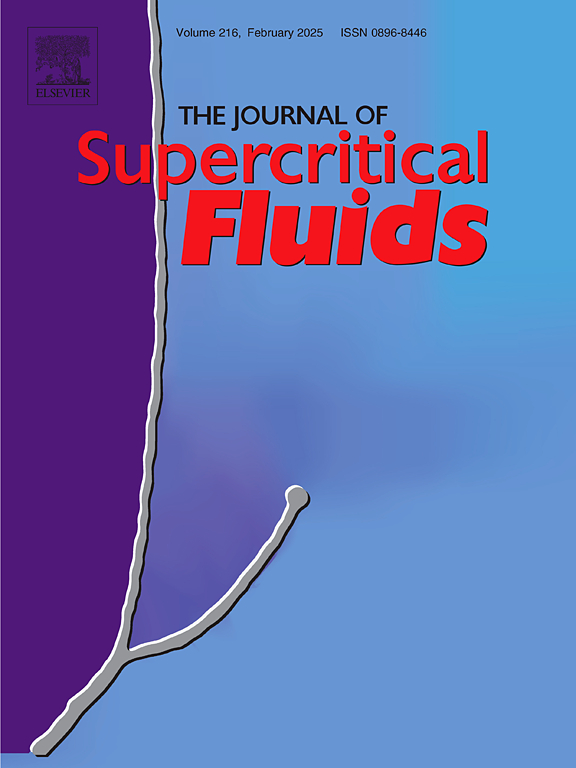Life cycle assessment of refined sunflower oil production for food industry: Exploring hexane-free alternative using supercritical CO2 for processing pressed cake
IF 4.4
3区 工程技术
Q2 CHEMISTRY, PHYSICAL
引用次数: 0
Abstract
Sunflower oil, valued for its high polyunsaturated fatty acid content and antioxidant properties, is primarily extracted using a two-stage process involving mechanical pre-pressing and hexane extraction. Despite its efficiency, hexane extraction raises significant environmental and health concerns. Supercritical carbon dioxide offers a green alternative with advantages in safety and regulatory compliance. This study conducts a comparative Life Cycle Assessment (LCA) of conventional hexane extraction versus Supercritical Fluid Extraction using carbon dioxide (SFE-CO食品工业用精制葵花籽油生产的生命周期评价:探索利用超临界CO2加工压榨饼的无己烷替代品
葵花籽油因其高多不饱和脂肪酸含量和抗氧化性能而受到重视,主要采用机械预压和己烷萃取两阶段工艺提取。尽管其效率很高,但己烷提取引起了重大的环境和健康问题。超临界二氧化碳提供了一种绿色替代方案,在安全性和法规遵从性方面具有优势。本研究对常规己烷萃取与二氧化碳超临界流体萃取(SFE-CO2)的生命周期评估(LCA)进行了比较,在SFE-CO2的情况下,考虑了萃取步骤后CO2再生的两种方法:常规减压和新型膜分离技术。LCA采用ReCiPe 2016方法和SimaPro软件,评估了18个中点和3个端点类别的环境影响。结果表明,SFE-CO2减压回收比己烷萃取对环境的影响更大(因为能耗更高),而膜过滤再生可以显著降低这种影响。与正己烷萃取相比,膜再生的SFE-CO2对环境的影响降低了95% %,与传统的CO2萃取相比降低了99.3% %。这些结果突出了膜过滤SFE-CO2作为工业葵花籽油生产的可持续替代方案的潜力,解决了与使用己烷相关的环境和健康问题。
本文章由计算机程序翻译,如有差异,请以英文原文为准。
求助全文
约1分钟内获得全文
求助全文
来源期刊

Journal of Supercritical Fluids
工程技术-工程:化工
CiteScore
7.60
自引率
10.30%
发文量
236
审稿时长
56 days
期刊介绍:
The Journal of Supercritical Fluids is an international journal devoted to the fundamental and applied aspects of supercritical fluids and processes. Its aim is to provide a focused platform for academic and industrial researchers to report their findings and to have ready access to the advances in this rapidly growing field. Its coverage is multidisciplinary and includes both basic and applied topics.
Thermodynamics and phase equilibria, reaction kinetics and rate processes, thermal and transport properties, and all topics related to processing such as separations (extraction, fractionation, purification, chromatography) nucleation and impregnation are within the scope. Accounts of specific engineering applications such as those encountered in food, fuel, natural products, minerals, pharmaceuticals and polymer industries are included. Topics related to high pressure equipment design, analytical techniques, sensors, and process control methodologies are also within the scope of the journal.
 求助内容:
求助内容: 应助结果提醒方式:
应助结果提醒方式:


